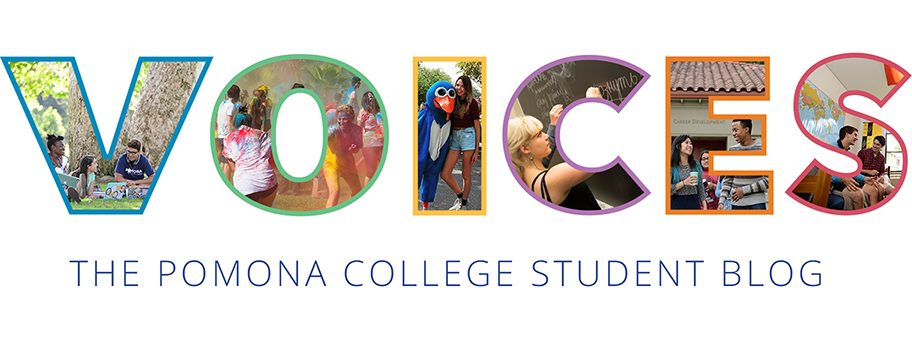By Cheryl Yau ’19
31 Dec 2017. I board an almost empty plane at Changi Airport, Singapore. Strike of midnight, and I am in transit at Doha Airport, Qatar.
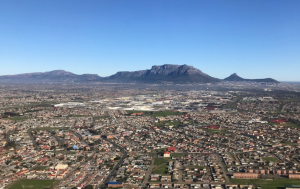
1 Jan 2018. Here I am, in Cape Town, South Africa. I exit immigration to find a little crowd waiting for me—our (brilliant) program coordinator, Pieter, and some of the other students on the program who’ve arrived slightly before me. They look nice, I think (or as nice as a journey across half the world can leave you…) Deep breath: I am ready to begin a new year and chapter in a new city and part of the world.
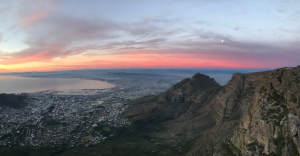
People study abroad for different reasons—to improve in a language, for academic research, to connect with their ethnic roots. Whenever I told people that I was in Cape Town for university, I would get one of two responses. The first (most typically by Asian aunties and uncles) would be of incredulity and confusion. If I was feeling up to it, I would further add, “…but just for a semester. My home university is in the U.S.” With that, their facial features quickly rearranged into one of comprehension. Underlying this exchange is the colonial-era belief that we have nothing to learn from the Global South and everything to learn from the Global North.
I chose to go to South Africa for my semester abroad partly out of a recognition that my education has been very Western-centric, and that I needed to intentionally decolonize my education. The history of the University of Cape Town is very wrapped up with the country’s colonial and apartheid history and is generally seen as a white institution, but, even so, I felt much more empowered and visible in this space that I have felt at Pomona. The courses are a lot less Euro-centric, and we had some amazing lecturers speak about the #RhodesMustFall movement, student activism, and what a post-colonial education looks like. It is true that Pomona College offers an extremely high quality of classroom education, enabled by faculty and resources that I am very grateful for. However, learning does not stop in the classroom.
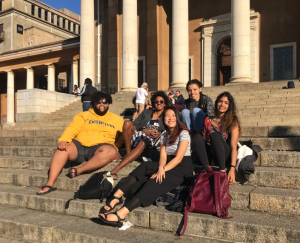
In Cape Town, I lived through a water crisis (taking 2-minute showers, and having our water cut off), which gave urgency and perspective to in-class lectures and debates on water resource allocation. I bore witness to the political transition from Zuma to Ramaphosa and the heated debates over land reform: an equally, or even more instructive, experience than discussions about “development” in the Western classroom.
The second response when I said I was there for university—also of confusion—would be, “aren’t you already studying abroad (as an international student in the U.S.)?” Underlying this response is the belief that there is a static, singular study abroad experience—something blatantly untrue once again. My first semester in the U.S. was an emotionally difficult one. I spent a lot of time by myself, wondering if I had self-exiled myself from my family and close friends. Comparatively, my first (and only) semester in South Africa was a light and joyful one. I suspect that being a “non-resident alien” in a place (the U.S.) for four years (and possibly longer), or a temporary visitor (in South Africa) for a mere six months puts you in a different mindset. In the former, you are overwhelmed by the need to embed yourself, build networks, invest in communities; in the latter, you can better convince yourself that you have no duty to the place, and that distance enables you to travel light. Both of these experiences are clearly different but worthwhile in their own right. Further, while our specific study abroad goals shape our experiences, there is also often an unpredictability to studying abroad, and we discover things we were not looking for. For instance, in Cape Town, an unexpected focus of my experience was learning the give-and-take of communal self-catered living, and recalibrating my relationship with the outdoors—both only made possible by the beautiful people I found myself on the program with.
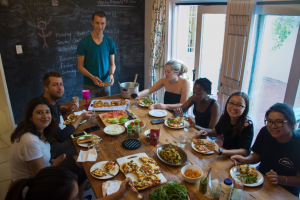
I’ve grown and have received so much (and still am!) from both my study abroad experiences. So, I end this piece with a genuine call for everyone (internationals too!) to seriously consider spending time abroad, and surrendering yourself to its transformative potential!
